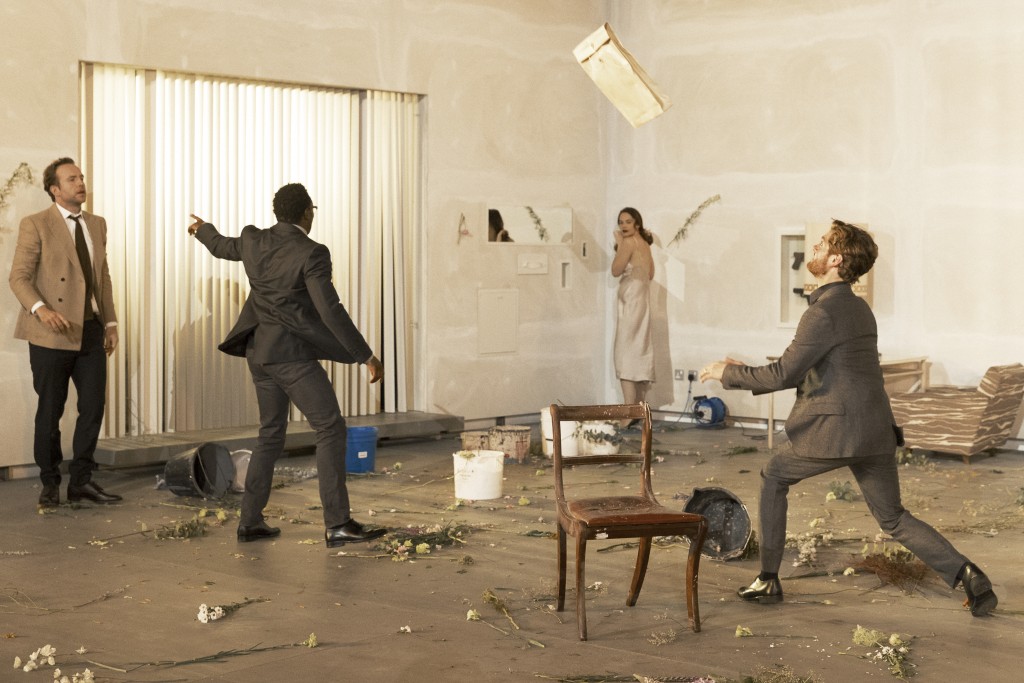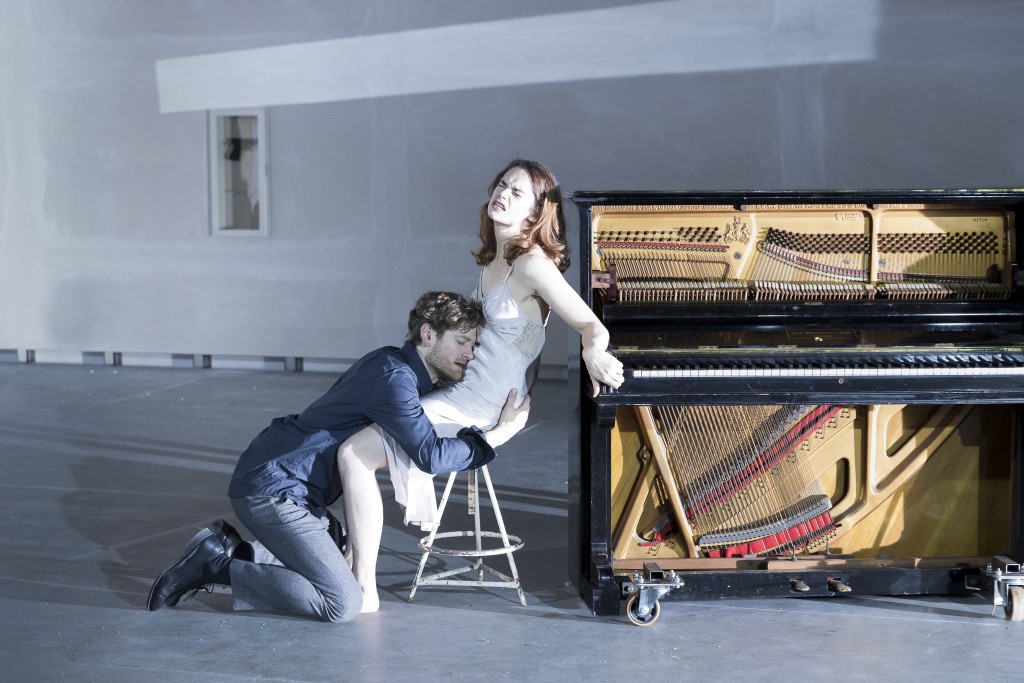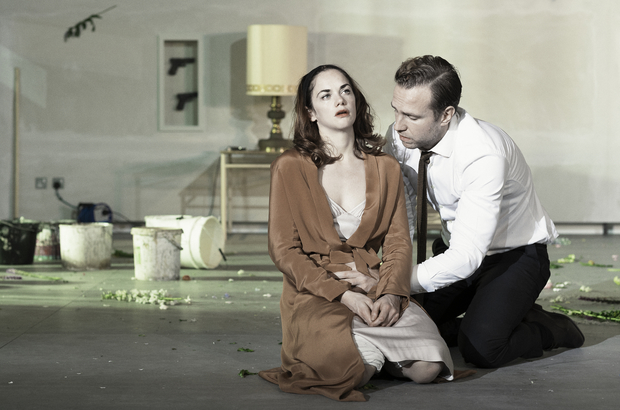THOMAS HETHERINGTON reviews Hedda Gabler at the National Theatre.
Ibsen. Marber. Van Hove. It’s hard to imagine a more tantalising trio of theatrical titans than this. Indeed, you’d be forgiven for chalking up this latest National Theatre production as a work of genius before you’d even seen it. Unfortunately, forgiveness would be in order.
Van Hove and Marber take Ibsen’s 1891 realist masterpiece and set it in a kind of modern day hinterland represented by the central couple’s apartment. Hedda, given a girlish boredom and a cold mien by Ruth Wilson, struggles to adjust to her new life with her husband Tesman (a charistmatic Kyle Soller). At once bathing and drowning in the dull expectation of excess she puts upon herself. The production perfectly captures Hedda’s inner state, particularly with Jan Versweyveld’s minimalist stage design, which lends the play a harsh starkness.

Director Van Hove uses the space offered by the Lyttelton stage’s vast proscenium arch to his advantage throughout. The single setting of Hedda and Tesman’s huge bare walled, white daubed, apartment contrasts well with the comparatively tiny people that occupy it. Action is constantly confined to the corners of this vast set, emphasizing the insignificance of the characters. Hedda’s piano stands stripped bare in the centre of the stage, acting as a serene oasis in the midst of the action throughout the play. Indeed, throughout the production music is used to give space, placing Ruth Wilson center stage and letting her simply be Hedda, scored by the repeated throws of Joni Mitchell’s Blue. It’s in these moments of pure theatre that the production is at its most effective, with Wilson quietly holding court over the entire auditorium.
Unfortunately, these moments are far and few between. More often than not the play feels entirely dispassionate, with the actors often giving performances of performances. This is, of course, apt at times for a production that centers on lies built upon lies–marriages of security, surrogate parents and corrupt officials abusing their respectable offices. But this highly structured approach just doesn’t gel with a play that charts the journey of a woman desperate to gain some control over any aspect of her life. Everything constantly feels rather frustratingly at a once remove emotionally. Despite the sterling work of Soller and Wilson in establishing their marriage, it’s hard to care when this is in turn disrupted by the arrival of outside figures.
And again, the performers are game here. Rafe Spall gives good sleaze, with a plummy public-school-accented turn as judge Brack, modulating between seedy and sociopathic at the drop of a hat. In particular his scenes with Wilson have a real buzz to them, Spall offering, in both senses, a cool cruelty to go up against Wilson’s. Their interactions also provide the play with some of its sharpest moments of horror. But, as with the other performances, it seems artificially acted. The same is true of Chukwudi Iwuji as Hedda’s old flame Lovborg, a performance that captures the refined control of the academic but lacks fizz when things begin to dramatically unspool. Sinéad Matthews fares somewhat better as a lovelorn Mrs Elvsted, but her performance feels off kilter compared to the rest of the action onstage.

As the second half reaches its climax Lovborg rages onto the stage in frenzy and a ripped shirt, proclaiming that he spent the evening getting ‘insanely raging drunk’. But any evidence of this drunken insanity is remarkably absent from the on stage proceedings. The play perfectly captures a cold inertia that’s not even reminiscent of a hangover, more of a sun sodden afternoon nap after a tepid gin and tonic. The constant presence of Eva Magyer’s maid Berte on stage reminds the audience that Hedda is imprisoned here, constantly watched over: it reminds the audience that they are involved in an act of watching. Yet one never feels voyeuristic because what’s on stage never feels truly real, this clever comment loses its meaning with the tonal approach of the production.
Ultimately Van Hove’s production makes for an interesting think piece on human interaction but, unfortunately, not for good theatre. This is a production about ‘not love’, not about feeling but faking it. Despite an able cast giving striking performances, notably the fizzy pairing of Spall and Wilson, it’s hard to engage with a production so insistent upon being once removed from its characters and their feelings. Van Hove and Marber give an interesting interpretation of Ibsen’s play, but in focusing so clearly upon the play’s themes of disconnection they render the whole thing a frustratingly inert exercise in apathy. Just like Hedda and her much talked of child, this is a play that fails to deliver, choosing instead to take an unfeeling, insensitive, approach.
Hedda Gabler is showing in the Lyttelton at the National Theatre until the 21st March 2017. For more information and tickets: https://www.nationaltheatre.org.uk/shows/hedda-gabler/





